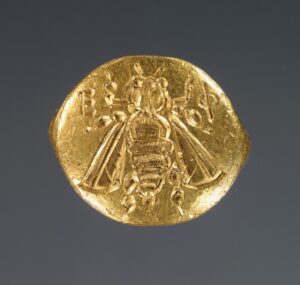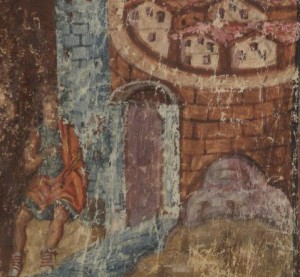July 7–12, 2025
The Dickinson Workshops are mainly intended for teachers of Latin, to refresh the mind through study of an extended text, and to share experiences and ideas. Sometimes those who are not currently engaged in teaching have participated as well, including students, retirees, and those working towards teacher certification.
The text for 2025 will be Vergil’s fourth Georgic, which poetically discusses the honeybee hive, its “customs, activities, peoples and wars” (mōrēs et studia et populōs et proelia). It also contains a memorable account of the myth of Orpheus and Eurydice. The workshop will be conducted both in person and online. For those attending in person, there will be an optional field trip to an apiary and a walk to look for plants and trees mentioned in the text. If time permits, we will read sections from Ovid’s Metamorphoses Book 10 about Orpheus and Eurydice.
Moderators:
Elizabeth Manwell, Professor of Classics, Kalamazoo College
Christopher Francese, Asbury J. Clarke Professor of Classical Studies, Dickinson College
Fees, Meals, Facilities, and Lodging
The fee for each participant is $600 for those attending in person, $400 for those attending online. The fee for in person attendees covers lodging, breakfast and lunch in the Dickinson cafeteria, the facilities fee, which allows access to the gym, fitness center, and the library, as well as wireless and wired internet access while on campus. The fee does not cover the costs of books or travel, or of dinners, which are typically eaten in the various restaurants in Carlisle. Please keep in mind that the participation fee, once it has been received by the seminar’s organizers, is not refundable. This is an administrative necessity.
Lodging: accommodations will be in a student residence hall near the site of the sessions.
Daily Routine
The first event for those attending in person is an introductory dinner at 6:00 p.m., July 7. Starting July 8, sessions will meet from 1:00p.m. to 4:30 p.m. each day, with mornings left free for preparation (or for field trips for those attending in person). The final session ends at 4:30 p.m. on July 12.
To Register
Please email Mrs. Stephanie Dyson, Classical Studies Academic Department Coordinator (dysonst@dickinson.edu). Include your email, physical address, phone number, and the name of the workshop you plan to attend. A non-refundable fee is due by June 1, 2025, submitted either electronically at this link, or in the form of a check made out to Dickinson College, mailed to Stephanie Dyson, Department of Classical Studies, Dickinson College, Carlisle PA 17013.
For more information, please contact Prof. Chris Francese (francese@dickinson.edu)

 Diverting Latin parlor game: take a very common Latin word (in the DCC
Diverting Latin parlor game: take a very common Latin word (in the DCC